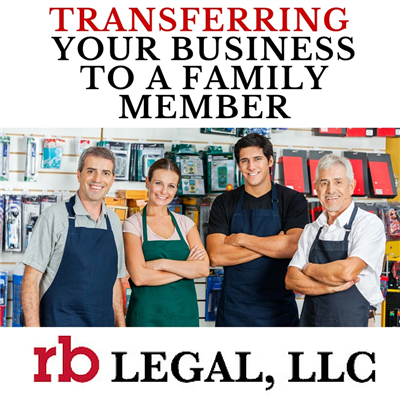There comes a time in every business owner’s life when they are ready to prepare for retirement.
There comes a time in every business owner’s life when they are ready to prepare for retirement. In some cases, selling the business is a no-brainer, other times people just choose to close their doors. But what happens when you want to pass your business down to your children. Especially if one or more of them isn’t interested in running a business.
Statistics show that only one-third of family-owned businesses are successfully transferred to another generation. The success rate of going from a second generation to a third is even lower. This is mostly due to poor transition planning.
There are many estate planning tools that can help you with this decision and the attorneys at RB Legal specialize in such scenarios. While you will want to maximize the value of your business to ensure you have enough money to enjoy retirement, with income, estate and gift taxes pending, a move like this takes careful consideration.
Clearly the downfall to this method is the amount of time it takes to complete the transfer.
If you choose to sell your business outright to a family member or someone else, as long as the sale is at full market value, it is not subject to gift tax, but you can get hit with capital gains.
One way to solve this dilemma is with a buy-sell agreement. A buy-sell agreement prearranges the sale of your business to another party at a specific date, whether it is your retirement or death. Under this type of agreement, you continue to have full control of the business until that agreed upon date arrives.
Private annuities, in which you continue to receive payments for the rest of your life, are another popular option when transferring ownership to a family member. Since these are typically only secured by the business assets, they are best reserved for family members or people you really trust.
One major obstacle is when children or even grandchildren play an active or inactive role in the business at varying levels of competency. If, for example, your daughter has an executive management role while your son has decided to take on less responsibility, it can cause infighting and jealously when the assets are divided. This is where outside parties, such as the attorneys at RB Legal, should get involved. For more information on how to transfer your business to a family member, contact us at any time!




